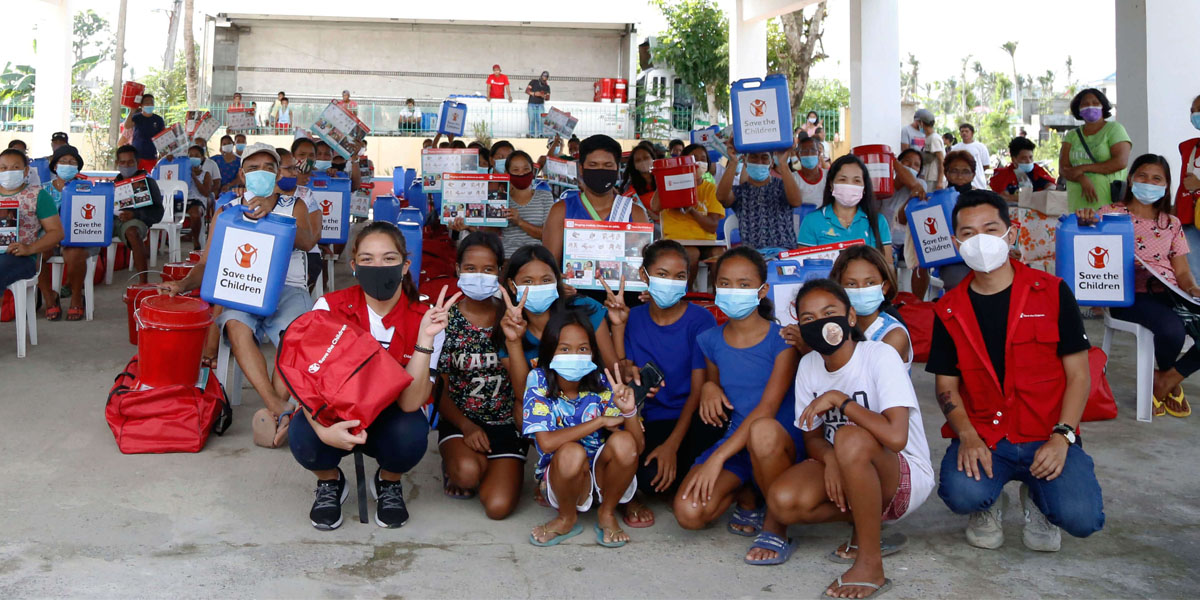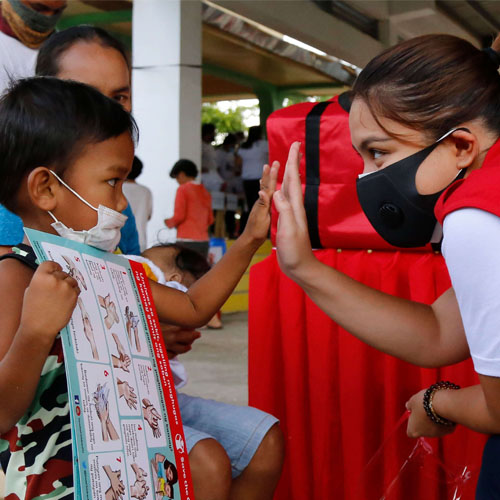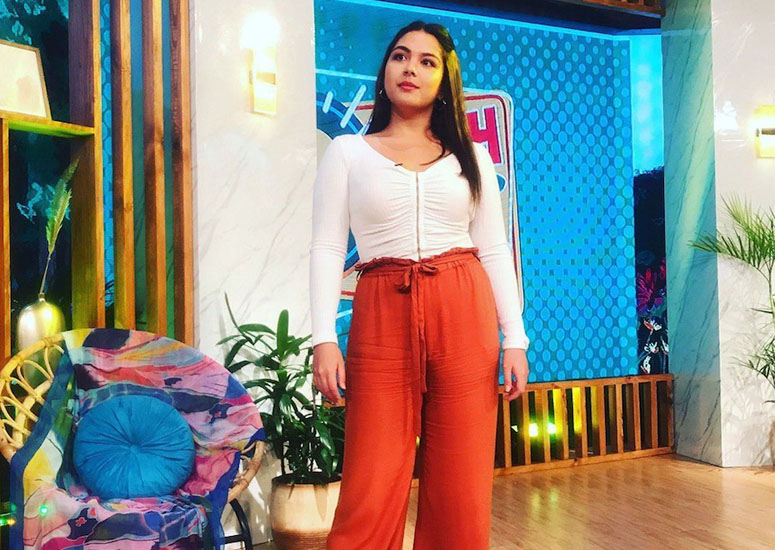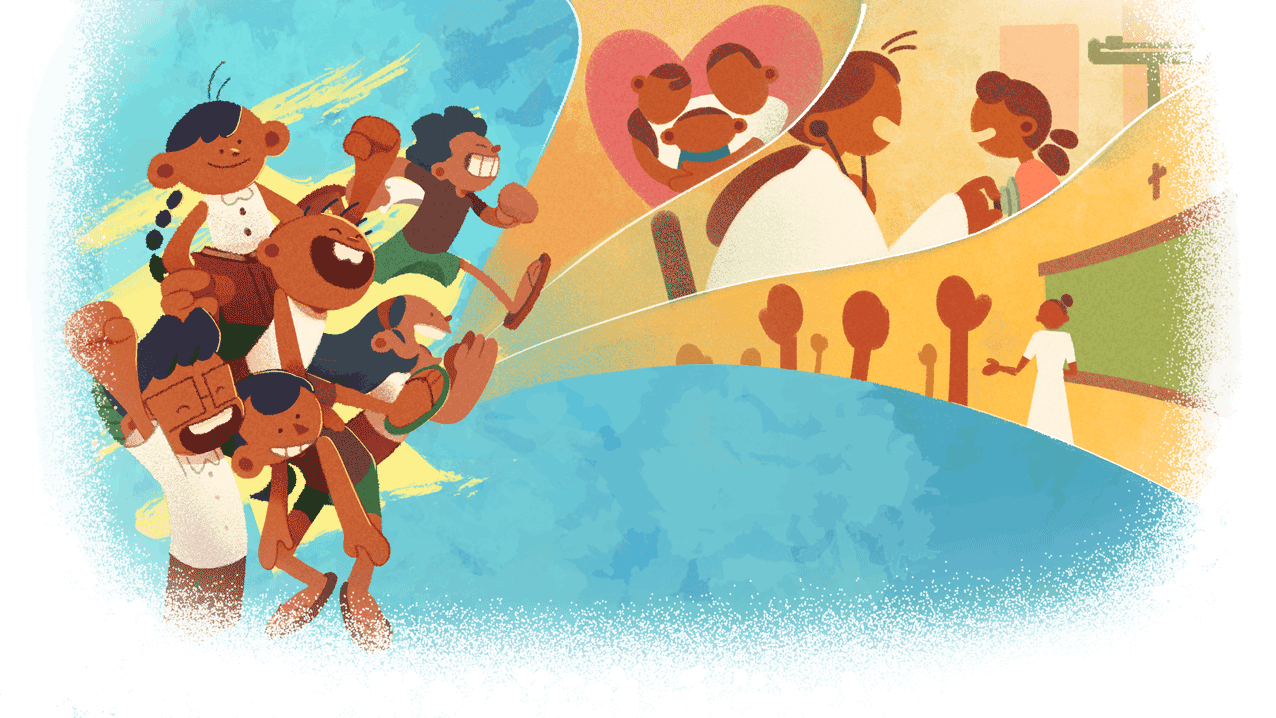Children
YES to putting a premium on fulfilling children’s rights
We need leaders who put a premium on fulfilling children’s rights—protection against hunger and sickness to ensure survival; leaders who will support children with accessible quality learning and ensure that all children return to school when it is safe to do so. We need leaders to stand against corporal punishment, making sure children live in healthy and safe environments.
In the upcoming 2022 elections, 40 million members of the youth ages 18 to 39 will be eligible to vote according to the Philippine Statistics Authority and Commission on Elections. There is power in our numbers and although it’s wrong to generalize generations, I’d like to believe that the youth sector has so much potential in upholding our democracy. With our access to information, we can definitely work towards making information available for everyone across all community conditions given the variety of our assets and constraints.
The youth’s dreams, capabilities and future are dependent on what today’s leaders prioritize and on things implicitly and explicitly said to them regarding what is possible for them. With that, we should seek out the leaders who fight for progressive policies, for quality education of the youth and for the provision of proper opportunities across all generations.
Since I strongly believe that it is truly our childhood that determines the kind of adults we become, I wanted to do more to support the youth and give children equal importance by recognizing their inherent rights to survival, development, protection, and participation in matters that affect them. This is what made me want to become involved with Save the Children Philippines.
Through my work with Save the Children, starting as a volunteer in 2016 and now as an ambassador, I have become more aware and exposed to how much more can be done for children especially those with disabilities and those from low-income families.


I assisted in projects that addressed malnutrition in Metro Manila and Southern Mindanao, allowed easier access to education amidst the pandemic, and provided relief to those affected by natural calamities. Through these, I was able to see firsthand that there is plenty of room for growth in terms of health and nutrition, education, and child protection in our country.
According to the Inter-Agency Regional Analyst Network, around 3.6 million (almost 30 percent) of Filipino children under five years (one in every three children) are stunted—that makes us the ninth country in the world with the highest number of children with poor health and nutrition.
As for education, due, in part, to the impact of the pandemic on family incomes and to challenges posed by blended learning, there has been a significant drop in the number of learners enrolled. And in terms of child protection, the Council for the Welfare of Children found that three out of five children suffer from abuses or violence at home.
These are certainly things we need to address. But even though non-governmental organizations like Save the Children are able to, even the slightest way, help bridge the gap, it is still not enough until our government prioritizes these concerns. Although they did start on the Inclusive Education Bill and the laws on Children in Situations of Armed Conflict Act, Children in Emergencies and First 1000 Days have been passed, there is still so much work to be done.
I look forward to more of us taking an active role in our society. I look forward to a nation that cares equally about the country and others, regardless of how we show it. We all want change and we all need that constant reminder that we can be the change that we need.
We need leaders who put a premium on fulfilling children’s rights—protection against hunger and sickness to ensure survival; leaders who will support children with accessible quality learning and ensure that all children return to school when it is safe to do so.
We need leaders to stand against corporal punishment, making sure children live in healthy and safe environments. We should elect leaders who are judicious—those who take time to understand problems and find various solutions, those who will prioritize the people’s needs, those who can see beneath the surface of things. We should elect leaders who are humble—those who are able to take criticism and are able to admit when they are not knowledgeable and need assistance, those who treat everybody equally with respect. We should elect leaders we can hold accountable.

I look forward to a leadership that puts the people first, one that encourages its people to take a more active role in progress. I look forward to a leadership that will take care of its people’s future and quality of life through environmental agenda among other things. I look forward to a leadership that will ensure the availability and quality of opportunities for all. I look forward to a leadership that will encourage us not to give up on our democracy even though it seems as if it has given up on us. But more than the leadership, I look forward to more of us taking an active role in our society. I look forward to a nation that cares equally about the country and others, regardless of how we show it. We all want change and we all need that constant reminder that we can be the change that we need.
As cliché as it sounds, we, the youth, are really the future of our country—what future will it have if we don’t work together to take care of it?
Let your voice be heard. Register now! Go to irehistro.comelec.gov.ph.



